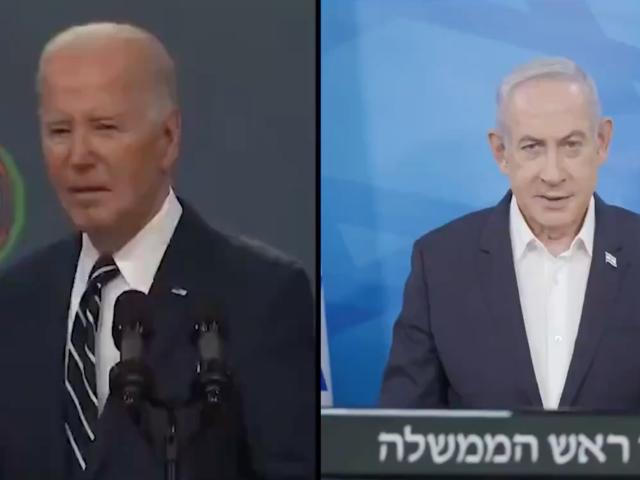In the recent virtual meetings between Israel and the United States, the contrasting approaches towards the situation in Rafah have come under scrutiny. The ongoing discussions reflect a fundamental divergence, particularly with the U.S. voicing strong reservations about Israel's proposed ground offensive aimed at neutralizing Hamas in Rafah.
The Biden administration has expressed concerns, highlighting the potential humanitarian crisis that could ensue from such an operation in Gaza's southernmost city, which currently shelters over a million Palestinians, many of whom not only celebrated the October 7th attacks, but actively participated in looting Israeli communities, kidnapping live and dead bodies and trading them to Hamas or Islamic Jihad for cash. The U.S. stance is that a major military offensive could exacerbate the plight of these individuals, putting them at greater risk and potentially undermining Gaza's main humanitarian hub.
IMO we are at a turning point. The Rafah operation to bring the hostages home & to complete the destruction of Hamas must happen. Hezbollah must be dealt with. 80,000 Israeli citizens must be returned home in Northern Israel. And Israel has to reestablish deterrence in responding…
— John Spencer (@SpencerGuard) April 19, 2024
Washington's push for Israel to consider more targeted strategies rather than a full-scale ground offensive suggests an interference in Israel's tactical assessments and operational plans, which are fundamentally driven by a need to ensure national security and self-defense. The American proposition to focus on targeted operations against Hamas leadership, while theoretically minimizing civilian impact, does not align with Israel's strategic assessments that deem a broader operation necessary to dismantle the remaining Hamas battalions effectively.
The dialogue reflects a broader theme of U.S. involvement in Israeli military strategies, which can be perceived as a limiting factor on Israel’s autonomous right to defend itself from hostile entities within its region. This is especially poignant considering the urgency with which Israel views the threats from its borders, highlighted by recent escalations involving Iran, which further complicate the security landscape.
This is why Israel must take Rafah and finish the war. pic.twitter.com/hjbC5Yo8g2
— Jewish Lumber King 🇺🇲🌳🇮🇱 (@EzraDrissman) April 18, 2024
While the U.S. has offered alternatives like enhancing border security measures in collaboration with Egypt to mitigate weapon smuggling and terror activities, the fundamental Israeli position remains that only a comprehensive military approach in Rafah will suffice to neutralize the threats effectively. Despite U.S. hesitations, highlighted by warnings from U.S. officials like Gaza humanitarian envoy David Satterfield about the potential disastrous outcomes of displacing Palestinians again, Israel maintains that any operation would proceed only after ensuring all measures for civilian safety and humanitarian aid continuity are in place.
My advice to Israel. Don’t negotiate with the hostile Biden regime that is funding Iran and seeking to topple your government.https://t.co/YgOlEUNrV1
— Mark R. Levin (@marklevinshow) April 18, 2024
The ongoing debates and delayed consensus not only underscore the complexity of military and humanitarian considerations but also highlight the potential constraints imposed by international allies on Israel's operational freedom and timing. This scenario ultimately challenges the narrative of sovereign decision-making in critical defense strategies, essential for Israel's long-term security and regional stability.


